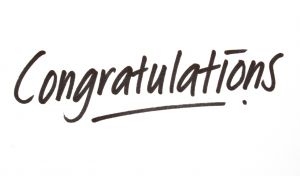
While I was in high-school, an algebra teacher taught me a principle that I’ve retained much longer than his musings on the teachings of Gauss, Euclid, and Pythagoras. Upon a student’s demonstration of proficiency in a new concept, he would proudly inform said student, “Congratulations! You’re ignorant!”
At first, that came as a bit of a shock. However, he was quick to add that we ought not to feel bad for being called ignorant, as he was quite possibly the most ignorant person in the room.
The reason for his declaration was simple but profound. He explained that the more we learn, the more we realize we don’t know. Hence, the more conscious of our ignorance we become.
This “ignorance principle” is one of the reasons I chose to begin this blog. As of this post, I’ve been working in Consulting/IT/Software Engineering for almost 10 years. I’ve learned a great deal during that time. That said, every “eureka” moment or break through in understanding a new concept or approach only serves to reinforce the notion that there is much more to this iceberg than the visible tip upon which I stand.
As I look back on my work from a year, 2 years, 5 years back I can’t believe some of the mistakes I made and things I would have done differently had I known what I know now. I don’t doubt that I might have similar reactions 5 years from now when I look back on my work from today.
So, what is the point of this post, you may ask? It isn’t just a moment of introspection shared with the masses of the internet blogosphere, although it is also that. I hope to provide a word of encouragement or a kick in the pants – as the case may be to the following:
1] To newer professionals, or those that lack in confidence due to lack of time and experience on the job: No one knows it all, so don’t discount your ideas because of a lack of experience. Test your ideas. Share them. Incorporate the ones that work into the way you do things, for the ones that don’t pass muster, remember why. Allow your team and your client/company to benefit from what you do know. There’s no need to wait until you pass some imagined threshold of knowledge or experience. Remember, while you don’t know it all, you probably do know enough to get the job done well.
2] To the more “seasoned” professionals: Don’t lose awareness of your “ignorance”! If you’re not still learning, evolving, improving in your craft and identifying new areas to study and learn, you may want to take some time to evaluate why. I have found during the years I’ve been in the workforce that there are few things more dangerous to a business/technology professional than allowing your skills to become too narrowly specialized or, heaven forbid, stale.
What a rich field business analysis is! Identifying and articulating business needs in such a way that they can be met through people, process and technology is a truly dynamic – and evolving – occupation. Every day brings new challenges. Every challenge provides an opportunity to push the boundaries of our knowledge and capabilities, enabling us to discover new approaches to solving problems, new ways to increase efficiency and effectiveness, and new ways of adding value for our customers.
My parting hope for now is that we all grow more “ignorant” by the day, and that we and our customers reap the benefits.





this is true…one should not wait to become an expert …rather than we should always try & experiment new ideas…the learning during such process is for life long
Great post and angle, Jonathan. When reading this I was reminded of a quote from Steve Jobs .. “We can always connect the dots looking backwards…” and as we all know that hindsight is 20/20, but for only those who realize and are willing to acknowledge it. I share the same sentiments with you about being able to look at things differently as we progress along our careers; even from a project to project or sometimes from one meeting to the next. All we need is a willingness to learn which will drive us to take risk to be ignorant.